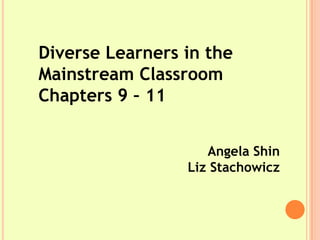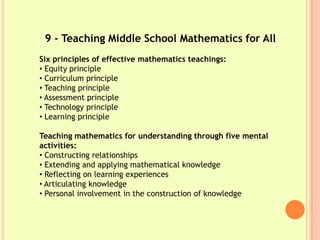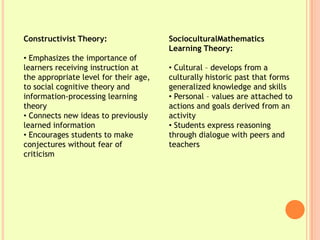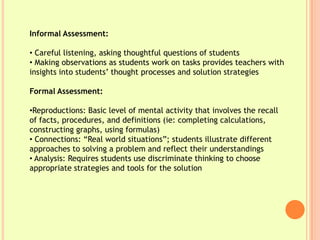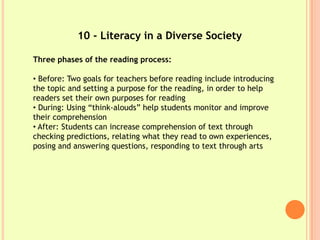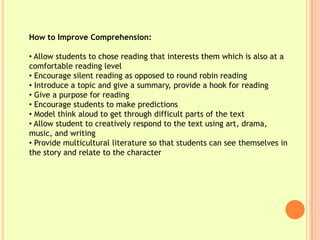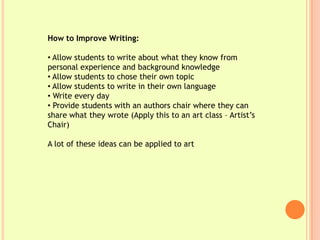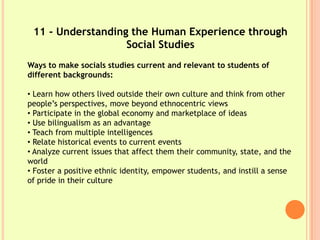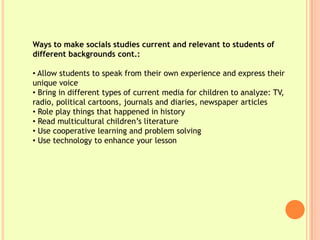This document discusses strategies for teaching diverse learners across three chapters. Chapter 9 focuses on principles of effective math instruction and constructivist and sociocultural theories. Chapter 10 discusses improving literacy through introducing reading purposes, modeling comprehension strategies, and allowing student choice and expression. Chapter 11 recommends making social studies relevant by learning other perspectives, relating history to current events, fostering identity, and incorporating student experiences and media.
